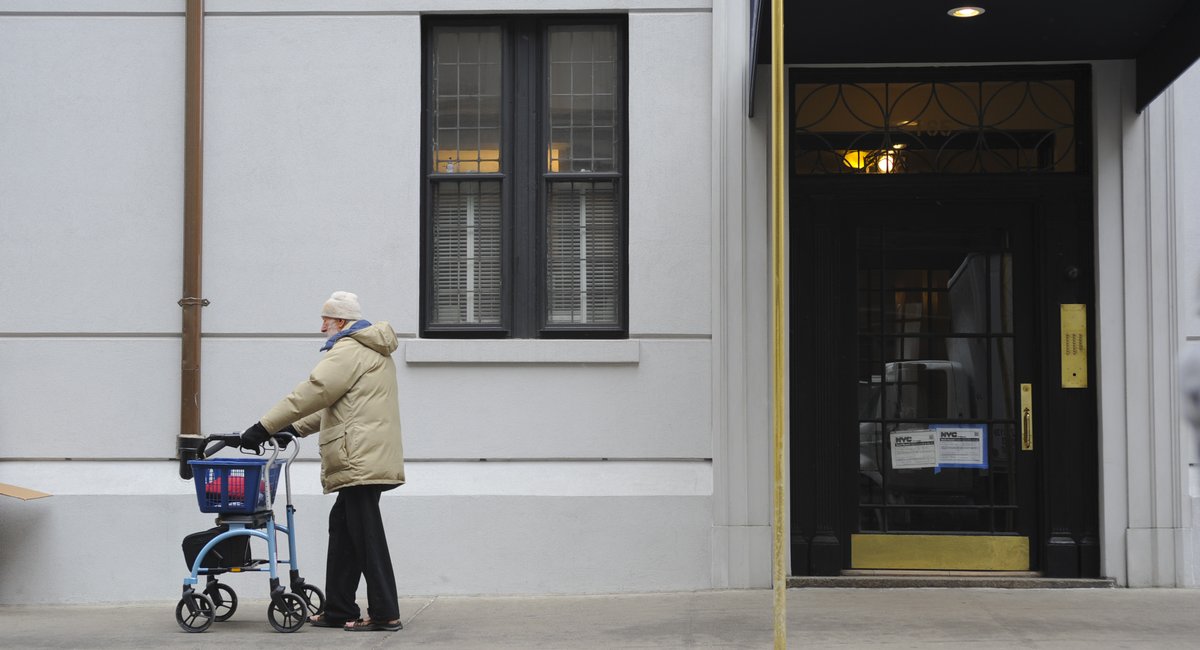An audit by State Comptroller Thomas DiNapoli found that weak state oversight of New York City’s Adult Protective Services failed to address chronic problems that left vulnerable adults without critical support.
According to the report, staffing shortages and heavy caseloads led to inexperienced and overburdened caseworkers, contributing to gaps in services. The audit, which comes nearly a year after Gothamist reported that APS was rejecting most New Yorkers referred to it for help, found high turnover made an already difficult job harder.
The agency, which intervenes when adults with mental or physical impairments are at risk of abuse, neglect or exploitation, operates through three field offices and several contract agencies.
“This is a job that is very stressful and requires basically a lot of knowledge and a lot of insight by caseworkers,” said Tina Kim, the state’s deputy comptroller for government accountability. “When you have people who are inexperienced and there is a shortage of staff, it puts pressure on the staff in terms of their ability to document… and it puts a crunch on the time that you have available to do your job.”
Staffing problems worsened during the COVID-19 pandemic. By the end of the audit period in 2024, even after staffing levels had rebounded, about 75% of APS caseworkers had less than two years of experience.
Auditors reviewed 179 referrals for 80 APS clients between April 2019 and August 2023 to assess how the agency was meeting client needs. They found 51 cases were missing key documentation, including eligibility letters, and 36 lacked a follow-up visit within 48 hours of the initial attempt, a required step when initial contact fails.
“Missing documentation can diminish a caseworker’s ability to properly manage the case and makes it difficult to assess the needs of clients should they be referred again later,” the audit says. “Likewise, when visits are not performed, a caseworker cannot assess the client’s progress, or lack thereof, toward meeting their goals.”
In seven cases, the audit found caseworkers may have closed a file before fully addressing a client’s needs. In one case, a person facing eviction was found to have sufficient mental and physical capacity and had their case closed — only to receive support later when a second referral was assigned to a different caseworker. That caseworker arranged a deep cleaning of the home and brought in a health aide.
The audit also criticized the state Office of Children and Family Services, which oversees APS programs across New York. The office is responsible for monitoring providers and ensuring compliance, but auditors said it failed to identify or correct issues flagged during reviews.
Although OCFS conducted 11 reviews of the city’s APS program between 2019 and 2024, and eight raised staffing concerns, only four led to performance improvement plans, none of which addressed staffing or caseload problems.
OCFS also failed to track APS staffing levels and had not developed best practices for managing caseloads, the audit found. At times, some caseworkers in city offices had up to 90 open cases, despite an internal target of 25 to 30.
In a 2024 survey conducted by the comptroller’s office, nearly 60% of APS caseworkers said staffing was inadequate, and only 22% believed cases were being assigned efficiently and effectively.
The comptroller’s office recommended that OCFS monitor vacancies and turnover at APS providers, establish caseload standards and issue improvement plans when needed.
OCFS officials generally agreed with the recommendations but disputed some findings.
In its response, the agency said it is working with the city to improve hiring and retention, including using bonuses and new technology. It also committed to developing caseload guidelines and strengthening oversight.

